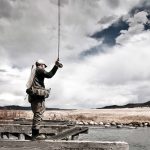In a statement released this week, Ducks Unlimited CEO Dale Hall emphasized that the organization has reached out to both federal and state agencies and offered its assistance and technical expertise in the damage assessment and habitat restoration phases of the 36-day-old Gulf disaster.
“DU understands the frustration of watching this happen,” Hall said. “We are frustrated as well, but right now it is important for the federal agencies and BP to handle the emergency response and containment phase. We have offered our assistance in any way we can.”
Oil has been spilling into the Gulf since April 20, 2010 and is currently moving into wetlands that support waterfowl, shorebirds and other wildlife. These wetlands are also vital to the livelihoods of many citizens in the region. DU said the the Gulf Coast is a top conservation priority for DU and the organization is committed to reestablishing healthy wetlands in the Gulf.
“I have spoken to the director of the United States Fish and Wildlife Service and directors of state wildlife agencies in Louisiana, Alabama and Florida,” Hall explained. “They know we are there to help when we are needed. DU plans on doing what it does best and that is restoring and revitalizing wetland habitats. We have worked hard in the past to reinvigorate these ecosystems and we will continue to do so.”
DU says the Gulf Coast is one of DU's top five priority habitats and the region is one of the most significant wintering areas for waterfowl in North America, having wintered up to 9.2 million ducks and more than 1.5 million geese in some years. The area of southeast Louisiana most directly and immediately affected may winter more than 4.6 million waterfowl.















